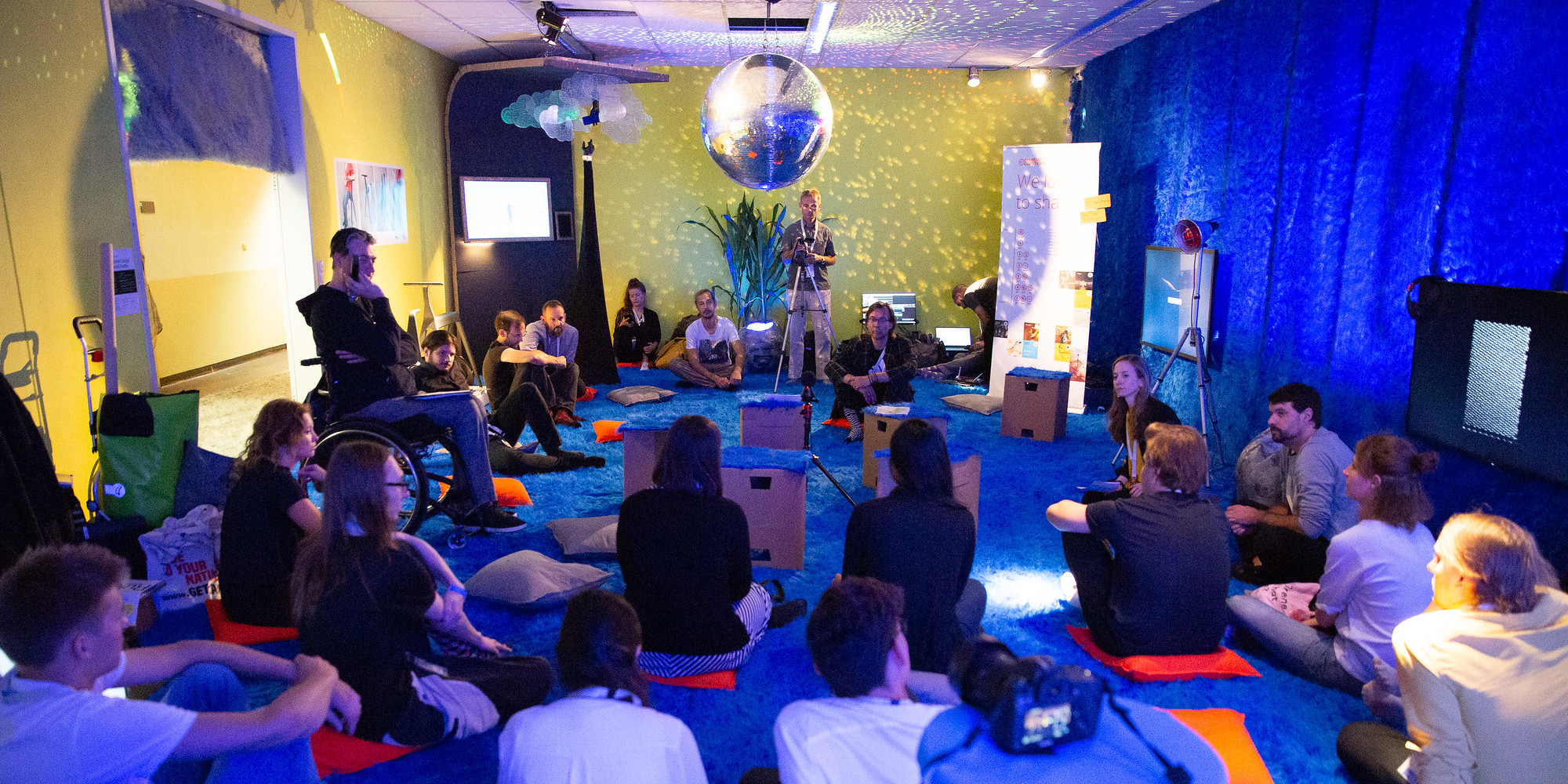Exhibition, Impulse lectures, Fishbowl Discussions and Workshops
Designers have to face an increasingly complex field of global challenges necessitating great sensitivity for relevant questions, adequate approaches and tools to develop sustainable solutions. How can design education convey the required skills and perspectives to cope with this dramatic rise in complexity? And how do technological advances shape the future of design?
The continuously growing “Academic Design Network Austria” currently comprises the following partner institutions in Austria: Die Angewandte Wien; FH Joanneum, Graz; FH Salzburg (Puch-Urstein); FH Salzburg (Kuchl); FH St. Pölten; FH Vorarlberg; Kunstuniversität Linz, New Design University, St. Pölten; Universität Mozarteum, Salzburg, Alpen Adria Universität Klagenfurt, FH Oberösterreich
FRI 6.9.
| 10:00 – 13:00 | Impulse Talks + Academic Speed Dating: Approaches to Design In reference to the students’ and other design projects, representatives of the participating universities will outline their approaches to the field of design in brief statements. In the course of the session participants and members of the audience can contribute design projects they find outstanding. Following this first step, we will continue with an “academic speed dating” session, where the audience as well as members of the network will have the chance to explore each other’s background and focus of interest on a one-to-one basis. |
| 13:45 – 16:45 | Exploring Processes and Solutions: Asking relevant questions – Finding appropriate methods Workshop: Appreciative Inquiry This workshop discusses past and recent design projects (also the ones collected in the morning session) to identify relevant questions, problem-adequate methods, fruitful processes and outstanding solutions. |
| 16:45 – 17:15 | Feedback and conclusion |
SAT 7.9.
| 10:00 – 13:00 | Fishbowl Discussion: The Future of Design – Transitions in the field How do technological advances (e.g. machine learning) transform working modes, task areas and perspectives in the field of design? In the course of discussion we will try to identify a number of burning questions for the future of design. Together we will desicuss the major challenges contemporary societies have to face, which necessitate design as an interdisciplinary field. |
| 13:45 – 16:45 | Designing the Futures We (Do Not) Want: Speculative Design Lab The burning questions identified in the morning session will form the starting point for developing utopian and dystopian scenarios to address challenges and opportunities of the future. |
| 16:45 – 17:15 | Feedback and conclusion |
SUN 8.9.
| 10:00 – 13:00 | Fluid Format Creation – Implications for design research and teaching The third day will focus on the implications of previous discussions for research and teaching in the field of design. How do we convey the skills and knowledge necessary to deal with the rising complexity of contemporary challenges. Together we will develop formats and methods to convey how to address complexity and “live” transdisciplinarity in design education. |
| 13:45 – 16:45 | The Messy Shape of Problems – Workshop: Approaching Complexity Which disciplines will have to be involved to tackle future challenges? How can we develop a common “trans-disciplinary” language within the frame of design projects? Design can be understood as the production of material discourse. Applying the method of mapping, we will trance the interconnectedness of objects thereby trying to untangle complexity. |
| 16:45 – 17:15 | Feedback and conclusion |
MON 9.9.
| 10:00 – 13:00 | Designing the Commons Day 4 offers an additional workshop on the responsibility of design to support collaboration cultures. We will be sharing best practices and will have a closer look at two application fields. The morning session will be focusing on Creative Commons and its impact on the sharing culture. We try to extend its concept for brands with a Label Commons Public License and investigate the #fairmove use case. |
| 13:45 – 14:45 | Workshop: Open Standards & Services The afternoon workshop will give an overview to Open Standards and Services and how designers can benefit and contribute when making their toolchain choice. |



